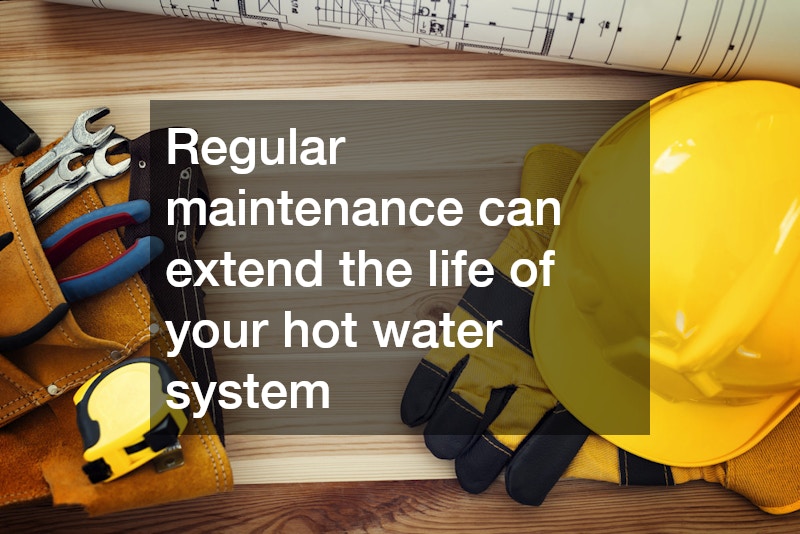A reliable hot water system is essential for every home, providing hot water for showers, washing dishes and other daily activities. Whether you’re installing a new unit, maintaining your current system or troubleshooting problems, understanding how your hot water system works can help you avoid disruptions and costly repairs.
In this guide, we’ll cover everything you need to know about hot water system services, including the different types of systems, common issues, maintenance tips and when to call a professional.
Types of Hot Water Systems
Choosing the right hot water system depends on your household’s needs, budget and energy preferences. There are four main types of hot water systems used in Australian homes:
1. Electric Hot Water Systems
Electric systems are one of the most common choices due to their affordability and ease of installation. They work by heating water in a storage tank using an electric element.
While they are reliable, they can be costly to run, especially if they operate on a standard electricity tariff.
2. Gas Hot Water Systems
Gas systems heat water using natural gas or LPG, making them a more energy-efficient option than electric models. These systems can be either storage-based or instantaneous (tankless). Gas hot water system services are often required for installation and maintenance, especially for homes without an existing gas connection.
3. Solar Hot Water Systems
Solar hot water systems use solar panels to collect energy from the sun to heat water. They are highly energy-efficient and environmentally friendly, but the upfront installation cost is higher than other options. Many households install a backup electric or gas booster to ensure hot water availability on cloudy days.
4. Heat Pump Hot Water Systems
Heat pumps work by extracting heat from the air and using it to warm the water. They are one of the most energy-efficient hot water systems, using significantly less electricity than conventional electric units. However, they require proper placement and warm climates to operate efficiently.
Common Hot Water System Problems
Even with regular maintenance, hot water systems can develop issues over time. Knowing the signs of a problem can help you get professional hot water system services before a minor issue turns into a major repair.
1. No Hot Water
If your system isn’t producing hot water, it could be due to a power or gas supply issue, a faulty thermostat or a broken heating element. In solar systems, a malfunctioning booster or cloudy weather could be the cause.
2. Water Temperature Issues
Water that is too hot, too cold or fluctuating in temperature may indicate a problem with the thermostat, a failing heating element or sediment build-up in the tank.
3. Low Water Pressure
Low water pressure from your hot water system can result from sediment or mineral build-up in pipes, a partially closed valve or issues with the system’s pressure relief valve.
4. Leaks and Drips
Leaks around the tank or pipes are a serious issue that requires immediate attention. A leaking hot water system could indicate a corroded tank, loose fittings or a faulty pressure relief valve.
5. Strange Noises
Banging, popping or rumbling noises coming from your hot water system are often caused by sediment build-up inside the tank. Over time, mineral deposits accumulate at the bottom, causing the system to overheat and make noise.
Maintenance Tips for Your Hot Water System
Regular maintenance can extend the life of your hot water system and help prevent unexpected breakdowns. Here are some key maintenance tips:
- Check the Pressure Relief Valve – Test the pressure relief valve every six months to ensure it is working properly. This valve releases excess pressure and prevents the tank from bursting.
- Flush the Tank Annually – Sediment build-up can reduce efficiency and damage the tank. Flushing your hot water system once a year helps remove debris and improve performance.
- Inspect for Leaks – Regularly check the area around your system for any signs of water leaks or corrosion.
- Monitor Water Temperature – Keep your water temperature set at a safe level (around 60°C for storage systems) to prevent scalding and bacteria growth.
- Schedule Professional Servicing – Regular hot water system services can help identify and fix issues before they lead to expensive repairs or system failure.
When to Call a Professional for Hot Water System Services
While some minor maintenance tasks can be handled by homeowners, professional hot water system services are essential for complex issues, installations and major repairs. You should call a licensed plumber or technician if:
- You have no hot water despite checking power or gas connections.
- Your system is leaking or showing signs of corrosion.
- You hear unusual noises coming from the system.
- Water pressure is consistently low or fluctuating.
- Your hot water system is over 10 years old and showing signs of wear.
A professional plumber can assess your hot water system, diagnose problems and recommend the best course of action, whether it’s a repair or a full system replacement.
Your hot water system plays a crucial role in your home, providing comfort and convenience for everyday tasks. Understanding the different types of systems, recognising common problems and scheduling regular maintenance can help keep your system running efficiently.
If you experience any issues with your hot water system, don’t wait for the problem to worsen—contact professional hot water system services to get expert advice and repairs. Whether you need routine servicing, emergency repairs or a full system replacement, professional help ensures you have a reliable supply of hot water all year round.
.





